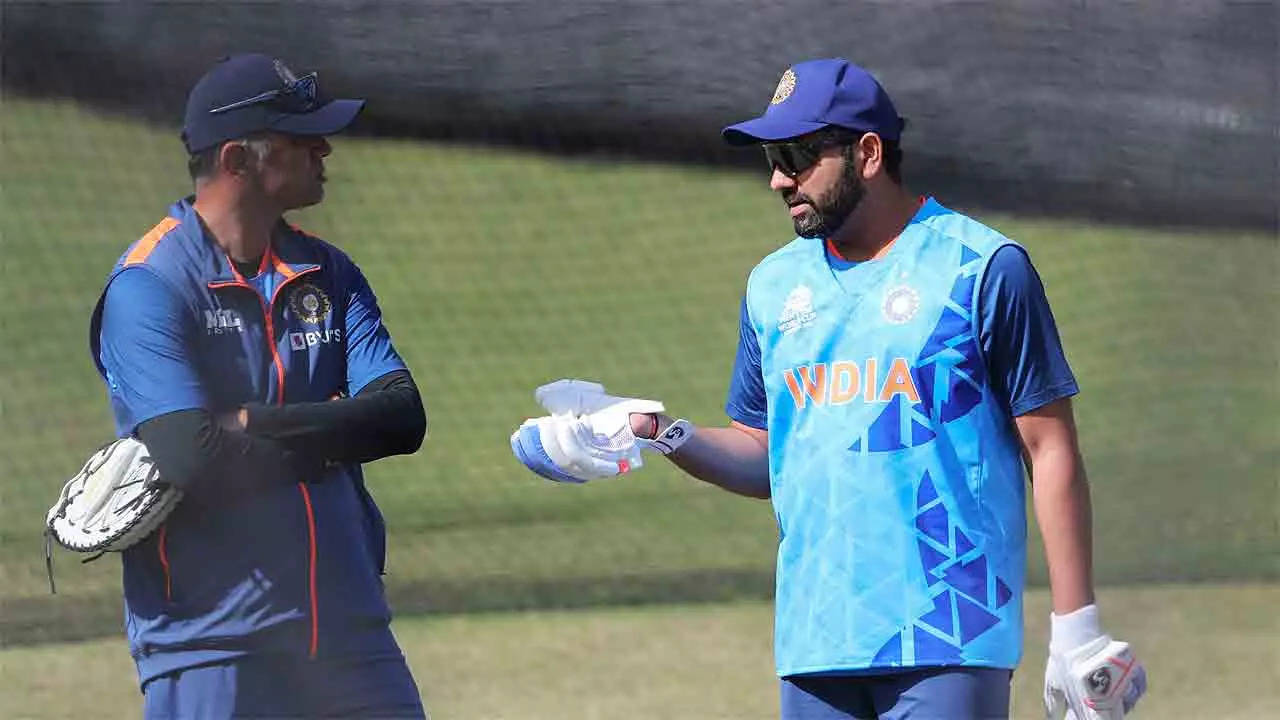
As rain takes centre stage ahead of big match, India and Pakistan work overtime to devise a plan to get on a roll
MELBOURNE: For a while on match eve, it seemed Indian and Pakistani cricketers and fans had brought their own sunshine to the Melbourne Cricket Ground. It even seemed a possibility that the notoriously fickle Melbourne weather, in deference to the big occasion, would deign to keep the rain away in time for a full game on Sunday.
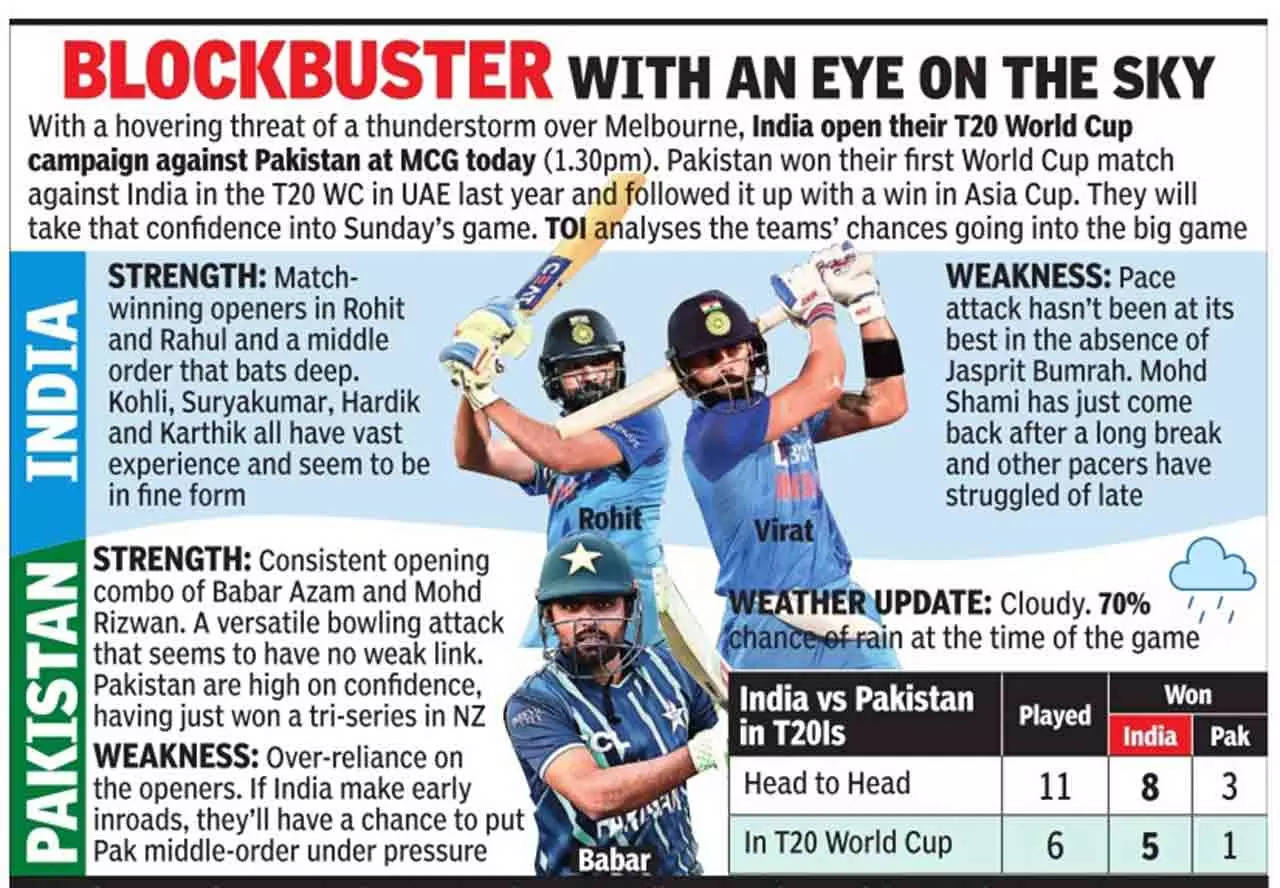
Constantly grim predictions from the local Met Bureau have bombarded local news outlets all week. Flood alerts were issued as late as Friday evening. To follow them up, it rained nearly through the night, leading to Pakistan's early morning session being rescheduled. When the Indians trained a few hours later, bright sunshine, huge crowds and cheery chants were the order of the day. It seemed a miraculous turnaround but as expected, a short-lived one.
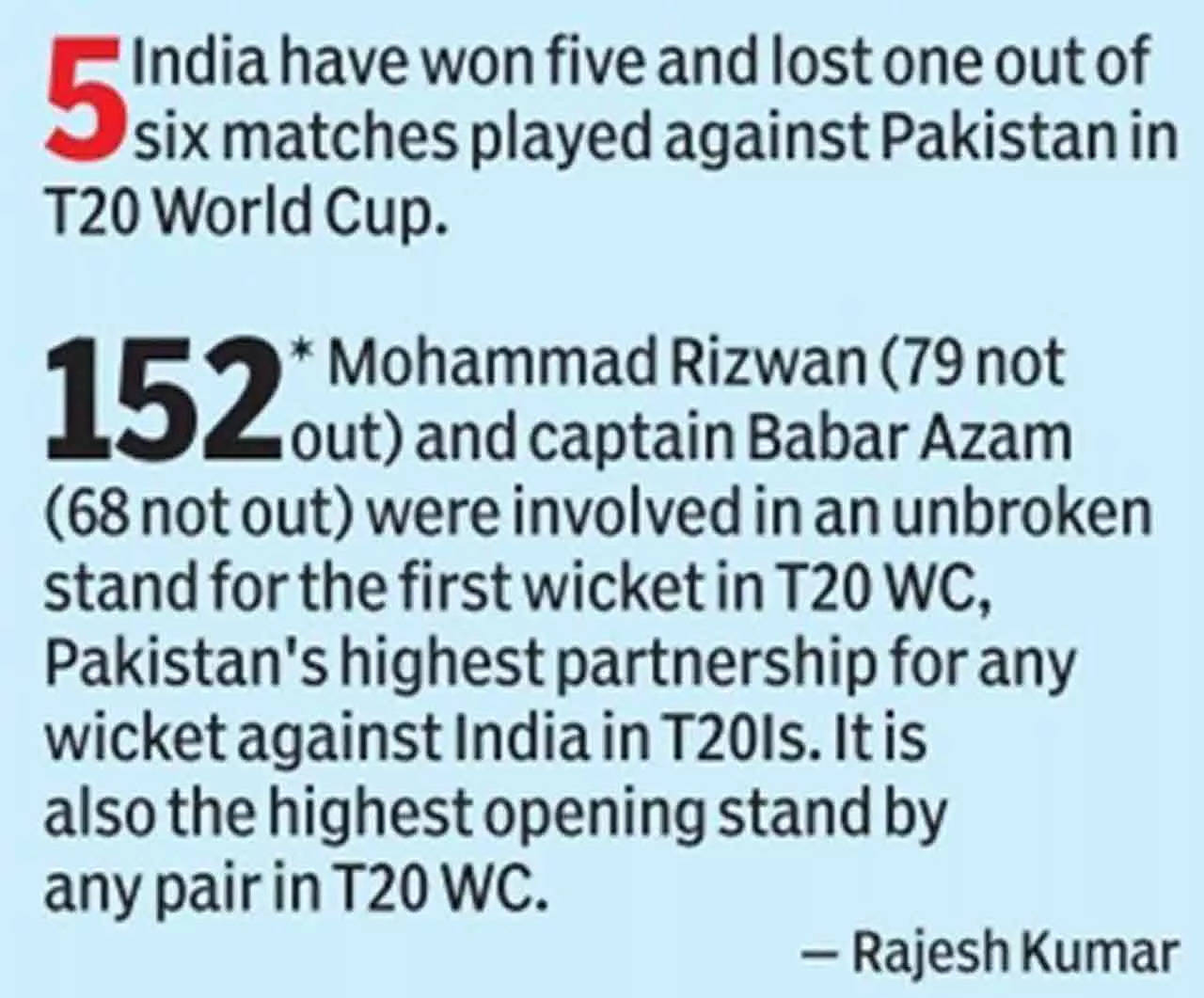
As Crowded House sang about Melbourne, "Even when you're feeling warm / The temperature could drop away / Like four seasons in one day."
In Melbourne, you never really know when you might need a jacket or a raincoat. Or a spinner or a pinch-hitter, for that matter.

From a 95% chance of rain on Sunday till even 24 hours ago, the prospect of rain on match day had fallen to 70% by Saturday evening. The rain is expected in the late afternoon and evening. The match starts at 7 pm local time. As of now, it seems there will be some sort of a game. The Met Bureau's predictions, of course, are subject to change.
That brings us to the not-so-good news: in rain-hit games, team managements can never really trust the combinations they have been working on and must be flexible with their plans. How skippers Rohit Sharma and Babar Azam must be wishing for rolling substitutions in T20s!
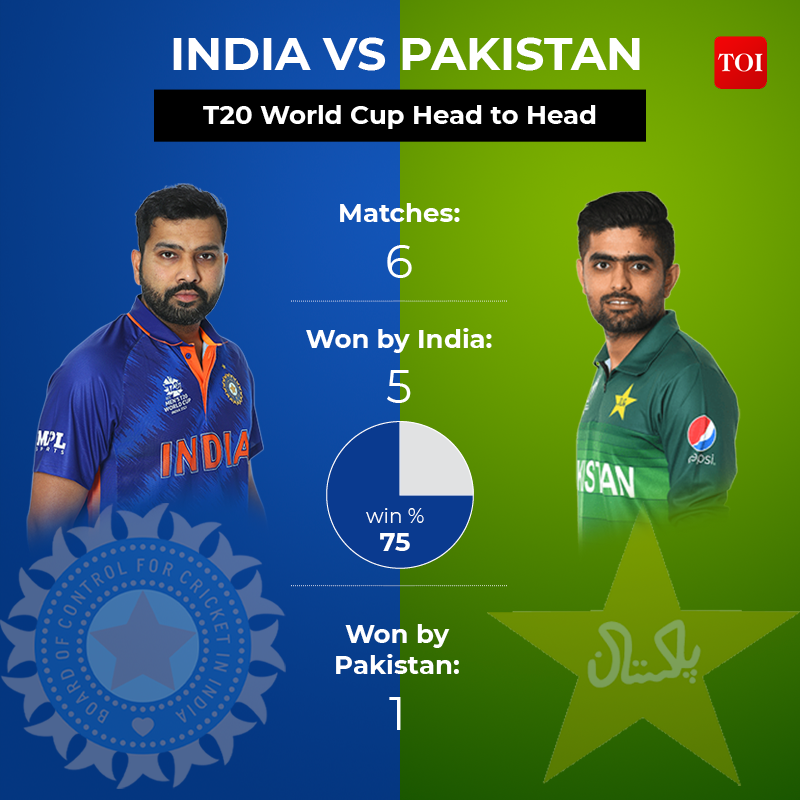
"I've been hearing about Melbourne weather for a while now. It keeps changing. In the morning when I woke up, a lot of the buildings when I opened my hotel were in clouds. Now we see sunshine," said Rohit.
"You don't really know what's going to happen tomorrow. The things that are in our control, we'll try and control that. We need to come here thinking that it's a 40-over game. If the situation demands a shorter game, we will be ready for that as well. Luckily, we played one in India against Australia which was an eight-over game."
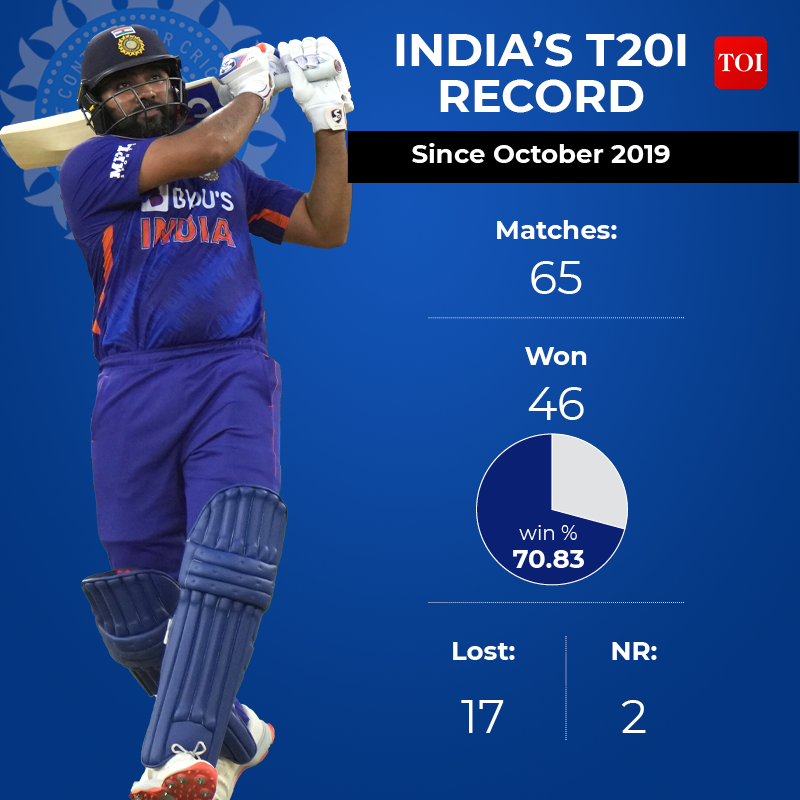
A shortened game will mean adopting a manic batting approach from the start, something India have been consciously working on for a while now, even while reposing their faith in experience. A bit of swing if they bowl first in overcast conditions could be a blessing. India have been in Australia a few weeks and have played a few warm-up games. A win here and they could be on a roll. A loss and ghosts of last year's T20 World Cup and recent Asia Cup reversals could leave them shell-shocked again for the rest of the tournament.

Saturday's extensive nets session, aided by shrieking vuvuzelas and the ambient noise of conch shells blowing, saw those who missed the earlier day's optional session get an extended run. Virat Kohli, Suryakumar Yadav and KL Rahul hogged the batting nets. Match-up specialist and offspinner Ashwin bowled at a vacant set of stumps, overseen by coach Dravid. Hardik Pandya and Bhuvneshwar Kumar went full tilt at Kohli and were often punished.
Shami, Axar Patel, Dinesh Kartik, Arshdeep and Rohit Sharma had trained a day earlier. The machine seems well oiled and ready to roll.

There are two major differences between the sides: Pakistan's heavy reliance on extreme pace, a discomfort for opposition teams, and the diversity of options, for all positions, at India's disposal. There is, of course, the Mohammad Rizwan factor: the Pakistani opener's aggregate of 193 runs at 96. 5 (SR 130. 4) is a record against India. Pacer Haris Rauf's BBL experience for Melbourne Stars is priceless experience of local conditions. Pakistan's cricketers know a big hand here will catapult them to instant superstardom, as Shaheen Shah Afridi will attest.
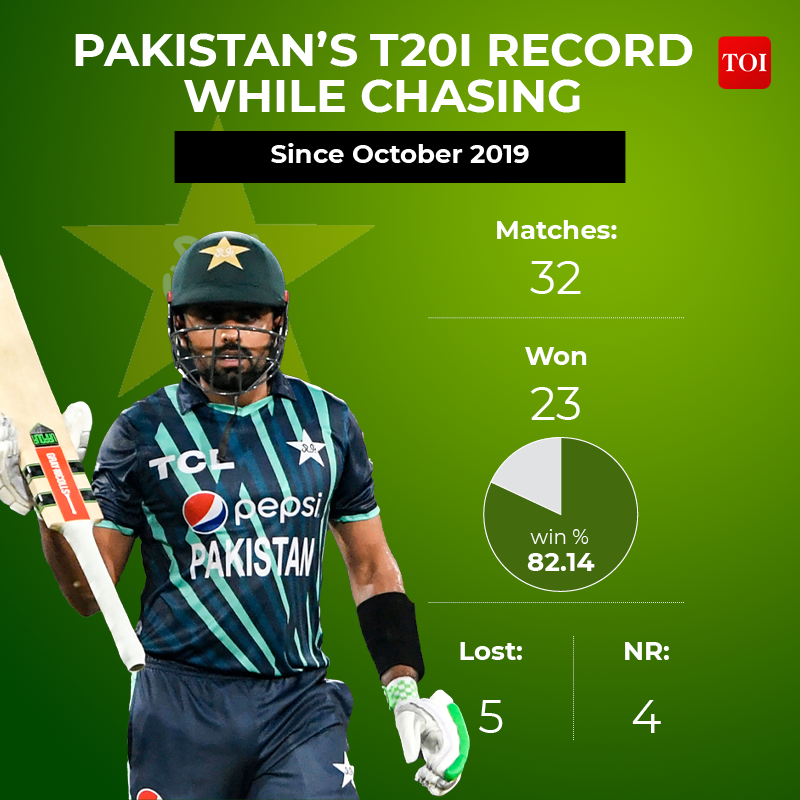
India are definitely under pressure to make a good start but so much talk of the rain is a distraction. "Winning the toss does become a little more important," Rohit mused, worriedly. By late evening, as the Pakistani cricketers trooped in to train, ominous dark clouds had again enveloped the city. The joy, cheer and sunshine of the early afternoon seemed like a forgotten memory.







